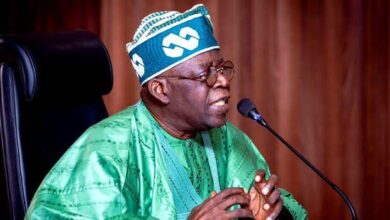Senate Committee summons Lafarge Africa Plc to explain planned share sale

This move follows growing concerns over a potential sale to Chinese investors, which has drawn strong reactions from lawmakers.
SEC Director General Emmanuel Agama, represented by Abdulkafir Abbas, stated that the commission had not received any formal notice about Lafarge’s proposed share sale. He explained that the SEC only knew of an internal restructuring within Holcim Group, Lafarge’s majority shareholder.
Abbas clarified that Holcim owns 83.81% of Lafarge’s shares through subsidiaries. He noted that a 27.77% stake was transferred from Associated International Cement Limited to another Holcim entity, Davis Peak Holdings Limited, without changing the ultimate ownership.
Meanwhile, BPE’s Satura Aisha Bello assured the committee that Lafarge’s divestment would not affect Nigerian investors, who hold 16.19% of the shares. She confirmed that Lafarge’s 83% stake comes from three federal cement companies acquired in 2001 and 2002.
Senator Osita Izunaso, the committee chairman, directed Lafarge Africa Plc to appear before the panel for further explanations. The committee also instructed its clerk to request documents from the Corporate Affairs Commission (CAC) regarding Lafarge’s shareholding policies.
These steps highlight the Senate’s focus on ensuring transparency in major corporate deals, particularly in key sectors like cement production. Stakeholders are closely watching the outcome of these proceedings, which could shape future foreign investment regulations.
The committee’s proactive approach reflects its commitment to protecting national interests while promoting fair business practices. As the investigation continues, industry experts await further developments that may influence Nigeria’s economic landscape.
The summoned hearing will provide Lafarge an opportunity to address concerns and clarify its restructuring plans. The Senate’s scrutiny underscores the importance of accountability in high-stakes corporate transactions.
Ultimately, the committee’s findings will determine whether Lafarge’s divestment aligns with national economic goals. The decision could set a precedent for similar transactions in the future, ensuring regulatory oversight remains robust.
With stakeholders eagerly awaiting answers, the Senate’s intervention demonstrates its role in safeguarding Nigeria’s industrial interests. The outcome will likely impact investor confidence and market stability in the cement sector.
As the process unfolds, transparency and due diligence remain key priorities for both regulators and corporate entities. The Senate’s actions reinforce the need for clear communication in major business decisions affecting the economy.
The hearing’s results will shape perceptions of Nigeria’s investment climate, influencing both local and foreign stakeholders. For now, all eyes remain on Lafarge’s response and the Senate’s next steps in this critical review.
Post Views: 73





